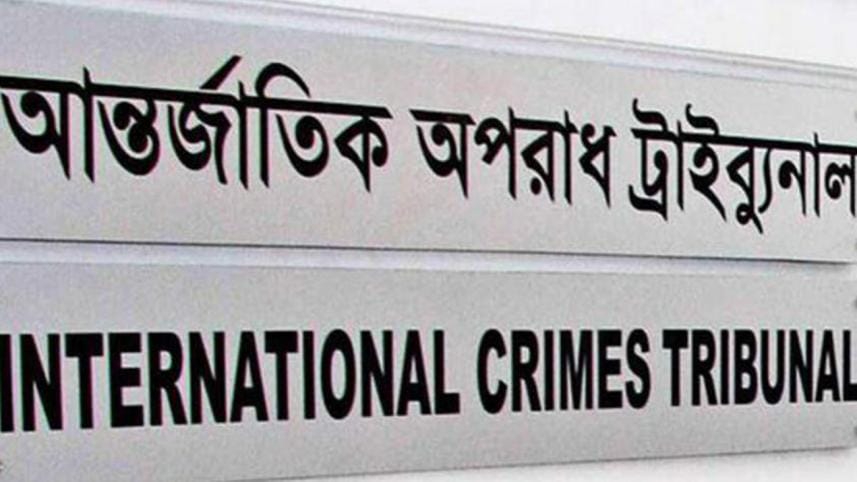Disposal of War Crimes Appeals: Investigation agency frustrated over delay

The investigation agency of International Crimes Tribunal yesterday expressed frustration over the delay in disposal of appeals against the verdicts in war crimes cases.
The agency also called for setting up a special bench of the Appellate Division to deal with the appeals filed with the Supreme Court by convicted war criminals or the government.
Coordinator of the agency Abdul Hannan Khan and Co- coordinator Sanaul Huq said these at a press conference at their Dhanmondi office yesterday on the ninth anniversary of the formation of ICT and its prosecution and investigation teams.
The agency also revealed the investigation findings in a case filed against nine Gaibandha men over wartime crimes.
The Awami League-led government formed the ICT-1 on March 25, 2010 to try alleged war criminals. A second tribunal, formed in March 2012, has been inoperative since September 2015.
The tribunals have so far delivered 35 judgments convicting 80 accused. Fifty-four of them have been sentenced to death.
However, appeals of 23 cases-- 22 filed by convicts and one by the government--are now pending with the Supreme Court, agency officials said.
The apex court on February 24, 2016 concluded proceedings of an appeal filed by war criminal and Jamaat-e-Islami leader Mir Quasem Ali challenging his death sentence. The SC upheld the death penalty in a verdict delivered about two weeks later.
That was the last time the SC heard any appeals.
The appeals, filed by convicts Abdus Subhan, ATM Azharul Islam and Syed Mohammad Qaisar, were included in the SC hearing list on several occasions in the last three years, but the hearings did not take place.
Talking about success of the investigation agency, Sanaul Huq yesterday said they have completed investigations of 69 cases against 180 accused.
A total of 28 ICT cases are pending at trial or pretrial stages while the agency is now investigating 24 other cases against 49 accused, he said.
“It was very difficult to collect evidence in such old cases but we have done this successfully,” he said.
Several political parties vehemently opposed the trail and tried to raise controversies over the proceedings at home and abroad, but the trial continued.
“We have to face questions from witnesses and victims about this [pending appeals],” he said.
Replying to a question, Sanaul said “We are also a stakeholder and part of the Liberation War, state and the people. While a majority of the people is frustrated about it, why wouldn't we be frustrated as well?”
Hannan Khan suggested the SC set up a three-member bench at the Appellate Division to hear the war crimes cases.
The attorney general's office can be helped by the chief prosecutor's office to deal with the appeals.
They also demanded more tribunals to dispose of the complaints.
The agency so far received 682 complaints against 3572 persons.
EVIDENCE FOUND AGAINST NINE
The agency has found evidence against nine Gaibandha men over their involvement in crimes committed during the Liberation War.
They were involved with the Razakar Bahini, an auxiliary force of the Pakistani army, and their crimes include murder, rape, abduction, looting, and confining and torturing people in Gobindaganj upazila between May 10 and December 8 in 1971, Hannan Khan said.
The accused Mofazzal Haque Prodhan, 82, Abdul Karim, 63, Sharif Uddin, 64, Shamsul Islam Khan, 64, Sekandar Ali, 66, Ismail Hosen, 70, Akram Prodhan, 68, Hafizar Rahman, 64, and Abdul Mannan, 64, are from Gobindaganj Upazila. Of them, Sharif, Shamsul and Mannan are absconding while the rest are in jail.
All the accused were involved with the anti-liberation party Jamaat-e-Islami in 1971. Only two are not involved with the party anymore. Of them, Karim is the former Gobindaganj Upazila vice president of the Jatiya Party while Mofazzal is involved with the BNP, Sanaul Huq said.
The agency submitted the probe report and other documents to the chief prosecutor's office following the press conference.



 For all latest news, follow The Daily Star's Google News channel.
For all latest news, follow The Daily Star's Google News channel.
Comments